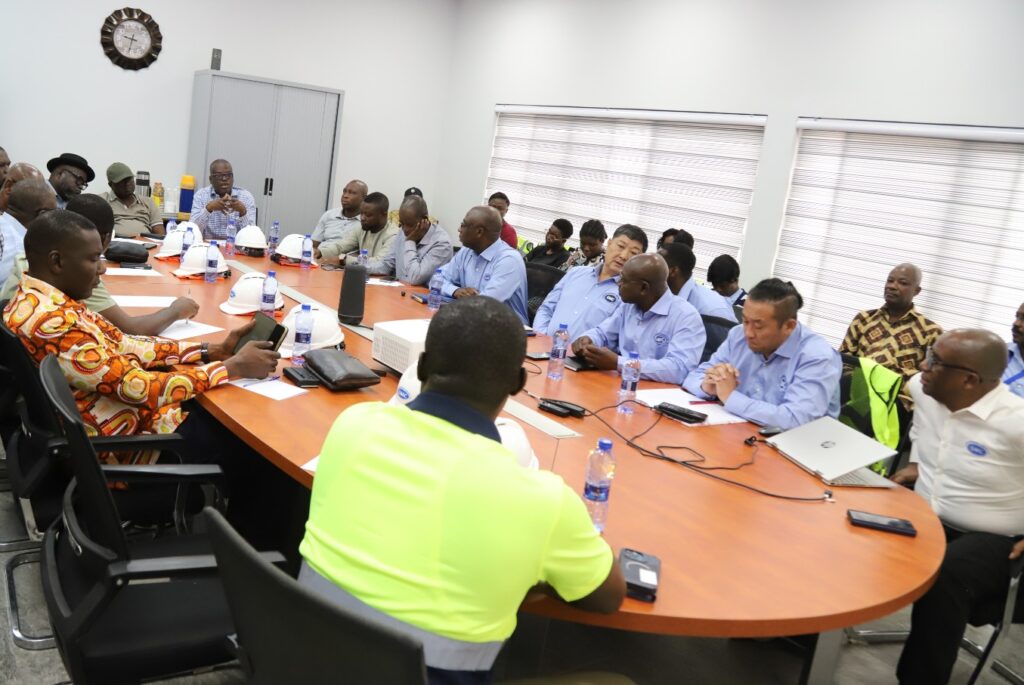The Parliamentary Select Committee on Lands and Natural Resources, with the support of the Ghana Chamber of Mines, has undertaken a working visit to the Ghana Manganese Company (GMC) in Nsuta, Western Region.
The engagement forms part of Parliament’s oversight responsibilities and the Chamber’s continued efforts to facilitate constructive dialogue between policymakers and the mining industry.
Speaking during the visit, the Vice Chairman of the Committee, Hon. Sanja Nanja noted that such engagements are critical for deepening Parliament’s understanding of the mining sector.
“Our role as legislators is not only to enact laws but also to gain firsthand knowledge of the challenges and contributions of the extractive industries. This enables us to advocate better for both government and industry in ways that ensure sustainable growth,” he stated.
GMC reaffirmed its commitment to fulfilling all fiscal obligations to the Government of Ghana. Company officials briefed the Committee on tax payments and dividends declared, underscoring their contribution to the country’s revenue mobilization efforts.
A key issue that dominated discussions was the construction of a manganese refinery. While acknowledging delays, the Committee encouraged GMC to take proactive steps towards developing the facility.
“If the company expects to benefit from the refinery, it must demonstrate ownership of the initiative. Value addition is crucial for Ghana’s industrialization agenda,” members stressed.
GMC also drew attention to railway infrastructure limitations, which continue to impede the efficient transport of manganese ore to ports. The company emphasized that delays in rail development increase operational costs and disrupt export timelines.
The Committee was informed that exploration activities are ongoing within GMC’s concession and in adjoining areas, with the goal of extending the mine’s life beyond its current 30-year lease, which expires in 2049.
At the end of the engagement, the Committee identified three priority areas requiring urgent attention: construction of the manganese refinery, development of railway infrastructure and addressing illegal mining activities within GMC’s concession.
The Vice Chairman of the Committee assured the company of Parliament’s support in escalating these issues to the relevant government agencies.
“We encourage GMC to formally submit its list of challenges and requests. This will guide our advocacy as we engage other arms of government on your behalf,” he added.
Commenting on the Chamber’s facilitation of the visit, the Chief Executive Officer of the Ghana Chamber of Mines, Ing. Dr. Kenneth Ashigbey said “Our role as an industry association is to provide a platform for open dialogue between government and mining companies.
This engagement between the Select Committee and Ghana Manganese Company exemplifies how collaboration can help address bottlenecks while ensuring that mining continues to deliver value to Ghana’s economy and communities.”


